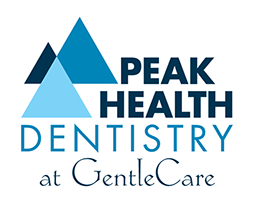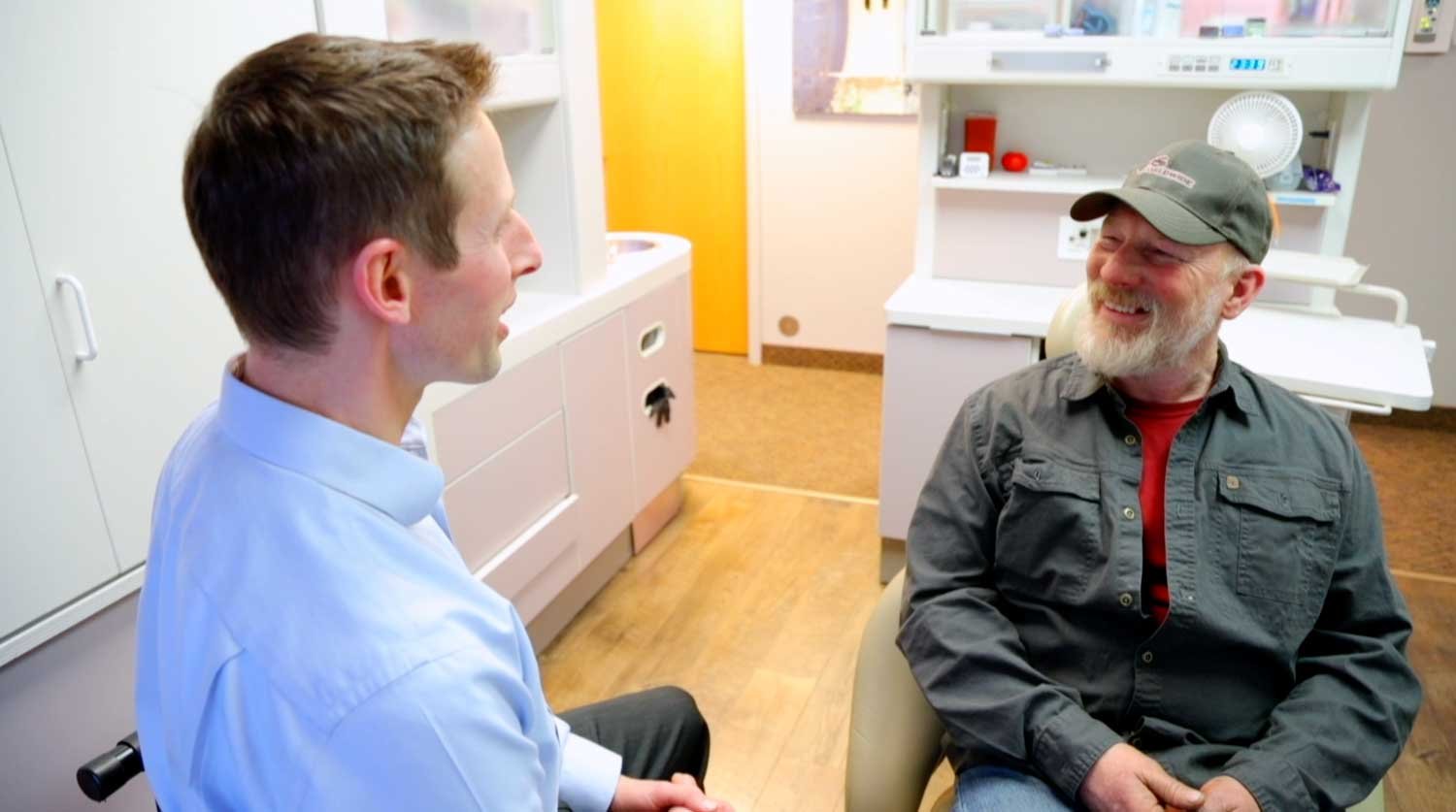Dr. Mishler can install implants and perform other types of oral surgery at his East Anchorage location.
Dental implants are a popular and effective way to replace missing teeth and are designed to blend in with your other teeth. Dental implants could be an ideal option for you if you:
Are self-conscious because of missing teeth,
Wear uncomfortable dentures; or
Don’t want to have a bridge made.
Implants are one of the greatest modern advancements in dentistry, although they’ve existed in some form for thousands of years. They are certainly an excellent long-term option for restoring your smile. Most patients find that their implant is secure and stable—and they forget that it isn’t their original tooth.
What is an implant?
Contemporary dental implants are made up of titanium and other materials that are compatible with the human body. A post is surgically placed in the upper or lower jaw (depending on the location of the tooth to be replaced). There, the post serves as an anchor for the replacement tooth. The new crafted tooth is then screwed onto the post.
VIDEO: What are the Benefits of Having an Implant?
Dental implants are a popular and effective way to replace missing teeth and are designed to blend in with your other teeth.
What is the process like?
Generally, the implant process occurs in three phases:
Your implant dentist surgically places the implant post into your jawbone.
You will then go through a healing period where it is recommended you eat a diet of soft foods, cold foods and warm liquids. A large component of your healing process involves osseointegration. This literally means, “combines with bone,” and that is what occurs between the bone in your jaw and the post. It is what makes your implant so strong and what will ultimately hold it in place. This process takes time for some patients (sometimes up to several months) and they have to wait until the post is completely integrated before the new tooth can be attached. For others, the implant posts and replacement teeth can be placed all in one visit.
When it’s time to place the new tooth, your dentist will create a custom tooth or crown specifically for you. It will be based on the size, shape and color of your existing teeth and will blend in with your other teeth. If you are replacing more than one tooth, custom-made bridges or dentures will be made to fit your mouth and your implants. Sometimes, because it takes time, if the dentist has not yet finished your new teeth, he/she may give you a temporary crown, bridge or denture to help you eat and speak normally until completion of your permanent replacement.
If you have anxiety or fear going to the dentist, ask us about Sedation dentistry which allows dental offices to assist in managing patients’ fears and phobias through anesthetics. Anesthesia is administered to a patient prior to having implant dental work done to dull pain, relax and ease anxiety. A sedation dentist’s techniques vary depending on the patient, work being done and often time age.
What are the advantages of implants over other tooth replacement methods like Dentures?
Improved ability to chew
Easier to clean with floss
Help preserve your natural jawbone
Can be more natural in appearance
Conventional dentures can be uncomfortable at times. Removable dentures or partial dentures require more effort to use.
What do I need to know about my implants and my health?
Like any surgical procedure, it’s a good idea to discuss any implant procedure carefully with your dentist, first. If you are generally in good health, this treatment could be an option for you. Your health is actually more of a factor than your age. It may be recommended that a physician medically evaluate you before any implant surgery is scheduled.
Certain health conditions or habits can interfere or slow healing, like:
Chronic illness (e.g. diabetes or leukemia)
Tobacco use
This information is adapted from the American Dental Association.




